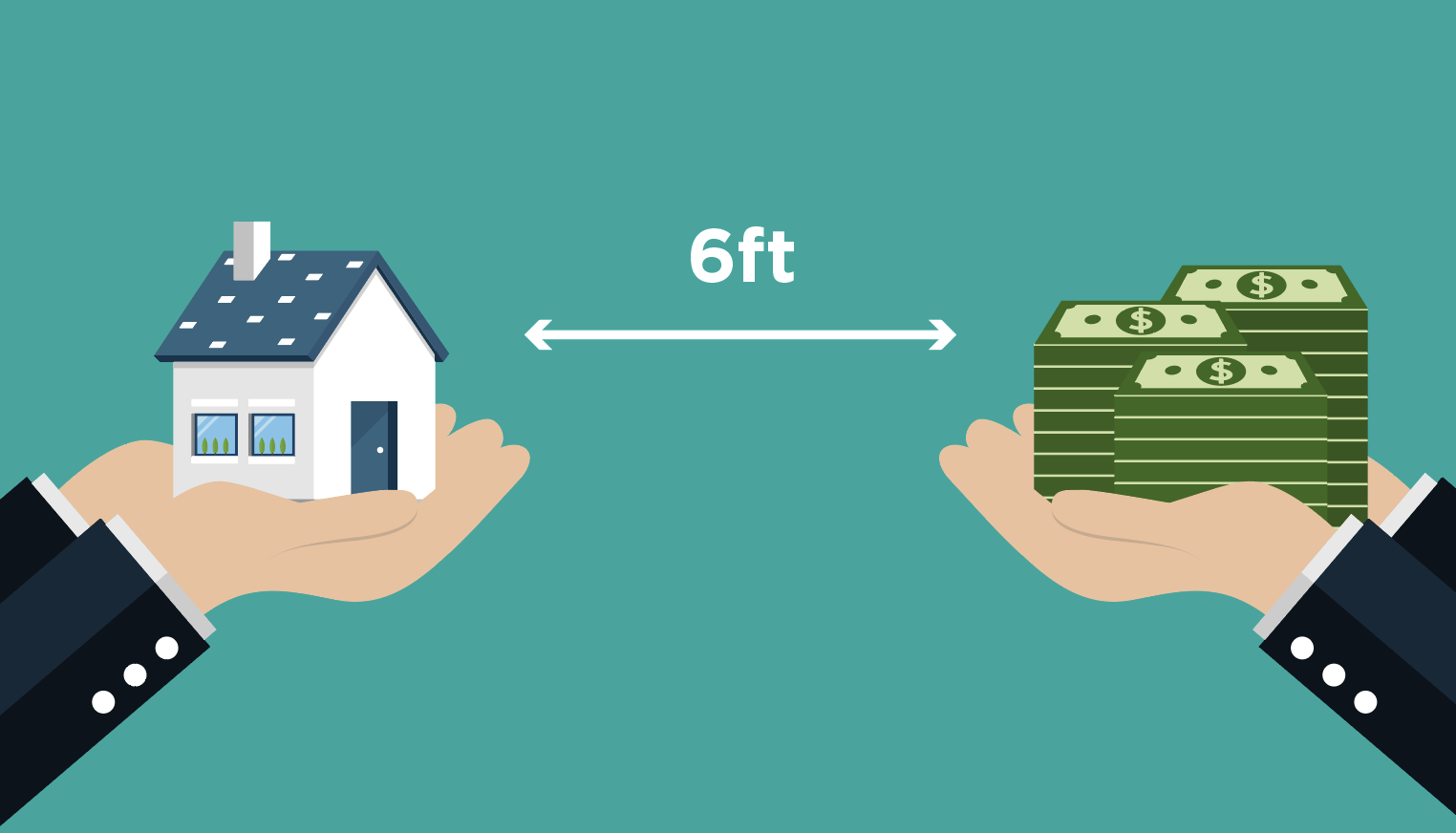The question that many clients have when it comes to negotiating during a pandemic is, how can I negotiate in such a way that I am protected and yet can obtain an accepted offer by the other party. The real estate market during a pandemic is not behaving normally and therefore the typical strategies do not apply. Your strategy may be different depending on which sector of the market you are involved in.
Sub $1M Single Family Market
In this article we are going to focus on buyer and seller strategies in the sub $1M single family market. These ideas may also apply to other competitive condominium markets as well. The current market is experiencing a shortage of single family inventory in the sub $1M price range because sellers are waiting until the coronavirus vaccine is available and travel returns to normal. The decision is one of health and safety versus economics. There is some sentiment that social distancing is easier in a single family home, which could be one reason that many buyers have gravitated towards this sector of the market.
Buyer Strategies
As a buyer in a fast-moving market, you want to be able to determine how much competition you might have on a particular property. There are instances where properties are receiving 5+ offers simply because there is a lack of inventory. The main goal you have in this situation is getting your offer accepted over the others. Here are the steps you can take:
- Review a comparative market analysis as a benchmark. You want your buyer’s agent to provide you with a value of this property based on comparable sales from the past 6-12 months. The reason why you may want to stretch out the comparable sales over this period of time is because you will understand what the values are in a normal market where more inventory is available. From there you will then know how much more above and beyond this value you are willing to go in order to get your offer accepted.
- Factor in the lower interest rate. The current rates of 3% or less for a 30 year fixed mortgage are about 1% lower than they were 12 months ago due to finance dynamics of the pandemic. Therefore, you can gauge how much more purchasing power you might have in this lower interest rate environment and be willing to increase your offer price accordingly.Example: if your mortgage payment on a $700,000 loan was $3,342 at 4%, then at 3% this same monthly payment gives you a loan amount of $792,665. This shows the power of leverage and the effect of a lower interest rate. Now, you may not have to increase your purchase by $92,000 above the list price, but you can feel comfortable knowing that you have some room to pay a premium because the rates are so low.
- Determine the premium you want to pay. When you are competing for a property that you want, there will be a premium that you have to pay. This premium, above and beyond the list price and your calculated market value as mentioned above, depends on how much you want the property. If you don’t want to be in a situation where you have to rent for a period of time before you purchase, or you have a baby on the way, then you likely want to give it your best shot. Remember, the low-interest rates have increased your purchasing power, enabling you to pay a premium.
- Understand the priorities of the seller. Have your agent understand the priorities of the seller so that the terms of the offer can be more favorable. For example, if the seller needs an extra 2-4 weeks to move, then it is good to factor in a rent-back for their benefit. Or perhaps the seller really needs to be closed in 30 days. Make sure you can do this with your loan officer, and structure an offer with time frames that accommodate the seller’s needs. Modify the terms of your offer so that there is little reason for the seller not to work with you.
- Make your offer personal. You want to stand out as a buyer when you are competing with other offers. Be able to make a good impression with the seller’s agent and the seller by having a cover letter, providing background information of yourself and your situation. Have a well-organized offer packet with pre-approval and verification of cash funds and make it as clean and simple as possible.
Seller Strategies
As a seller in this market, you will likely not have a problem finding the right buyer so long as you are reasonably priced and your property presents well. However, you still want to be smart about the process and not overconfident. Be willing to see the favorable position that selling now provides you, and know that it won’t be this way 6 months from now.
- Review a comparative market analysis as a benchmark. Similar to a buyer, you want to view the value of your property based on comparable sales from the past 6-12 months. This gives you an idea of what the values are in a normal market where more inventory is available. From there you will then gauge pricing your property within an acceptable range but not too high so that you price yourself out of the market. Remember that buyers are eager but not desperate. You want to create a competitive environment which provides you leverage in negotiations.
- Make your property move-in ready. Health and safety is a heightened concern with buyers. It has increased their awareness to homes which perhaps may not have been as well-maintained. Additionally, hiring contractors and handymen at this time could prove to be more difficult than it’s worth. So many buyers are looking for homes that are move-in ready and require less additional work before getting settled.
- Create a competitive environment. Having a competitive environment will allow you the most leverage in negotiations. You can create this by pricing your property well, presenting it attractively, and having maximum exposure before calling for offers. Maximum exposure is achieved when you present the property through as many marketing channels as possible at the very beginning of your listing period. 3D virtual tours and virtual open houses are included in this period of time. A real estate professional will then sense, based on the activity achieved with the marketing, that a specific offer submission date can be set for all interested buyers. This window of opportunity instills the sense of urgency required to create a competitive environment.
- Choose the right buyer. If you have been able to create a competitive environment for your property then you are in a good position to choose the right buyer to work with. It is important to note that you want to look at offers first objectively and then subjectively. You want to review all offers based on the merits of their down payment, type of financing, timeframes and terms before you look at their cover letter and why they are the best deserving buyer. Some sellers make the mistake of falling in love with the wrong buyer and regretting it after they have to make concessions to close. Of critical importance is their current work situation. Be sure that the buyer is able to obtain financing based on the stability of their job, knowing that the closing process can take up to 45-days, and anything can happen.
These strategies are time-sensitive and may not be as relevant 6 months from now. But it helps to know the condition of the market and the changes that result from being in a pandemic. If you are in a situation where you require more insight and expert advice, please give us a call and we’ll be glad to arrange for a complimentary consultation.


